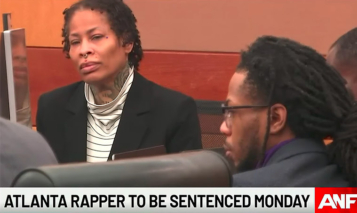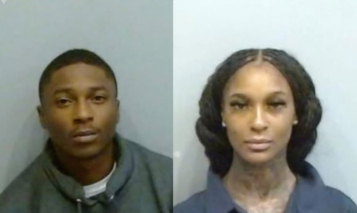
A Florida man who used COVID-relief funds from the federal Paycheck Protection Program (PPP) to purchase a Lamborghini has been arrested.
Authorities say David T. Hines, of Miami, Florida, fraudulently obtained $4 million in PPP funds and used part of those funds to purchase a $318,000 Lamborghini Huracan Evo sports car.
The feds seized the Lamborghini and $3.4 million from bank accounts at the time of his arrest.
Hines made his initial court appearance before U.S. Chief Magistrate Judge John J. O’Sullivan in the Southern District of Florida on Monday.
He was formally charged with one county of bank fraud, one count of making false statements to a financial institution and one count of engaging in transactions in unlawful proceeds.
The complaint alleges Hines applied for $13.5 million at Bank of America on behalf of his six moving companies. He claimed he had 70 employees with a monthly payroll of $4 million.
Applicants who are approved for PPP loans are required to deposit the funds into a separate bank account created specifically for the loan so the feds can see where the money is spent.
The loans are forgivable if the money is spent on mortgage, rent, and utilities and at least part of the loan is spent on payroll.
The complaint alleges that the bank approved three of the applications for $3.9 million and began depositing hundreds of thousands of dollars into Hines’s bank account.
Hines allegedly transferred some of the funds to his savings account within days and wired $318,497 to Lamborghini Miami, a luxury car dealership on Biscayne Boulevard in North Miami Beach on May 18.
The Lamoborghini was jointly registered to Hines and his business, records show.
Bank records show Hines spent some of the cash to make purchases at luxury retailers, on jewelry, and on rooms at luxury resorts in Miami Beach.
The federal complaint further alleges that Hines did not use the money to make payroll payments that he claimed on his loan applications.
Hines’ companies showed monthly revenue and expenses averaging about $200,000 – much less than the millions he claimed on the loan applications.
Assistant U.S. Attorney Michael Berger said scammers are able to exploit and defraud the Small Business Association (SBA) because the SBA doesn’t bother to check any of the claims made on applications.
“In the ordinary course of providing the loan guaranty, neither the SBA nor any other government agency checked IRS records to confirm that the applicant had paid the payroll taxes represented in the PPP applications,” says the criminal affidavit.





